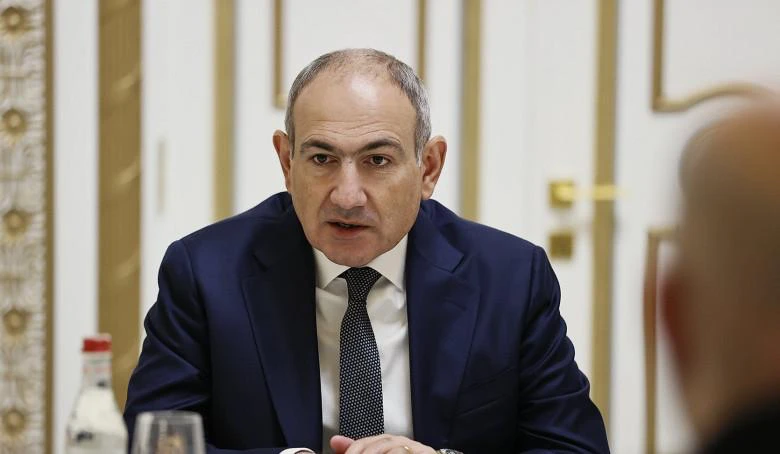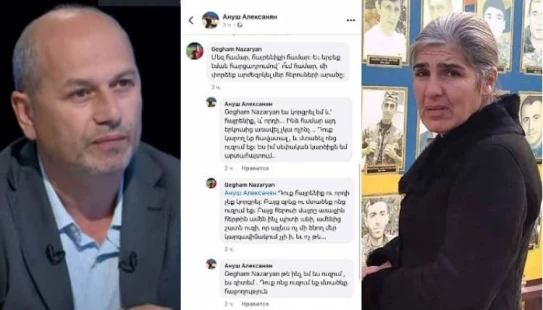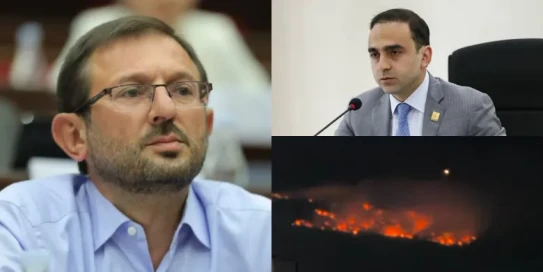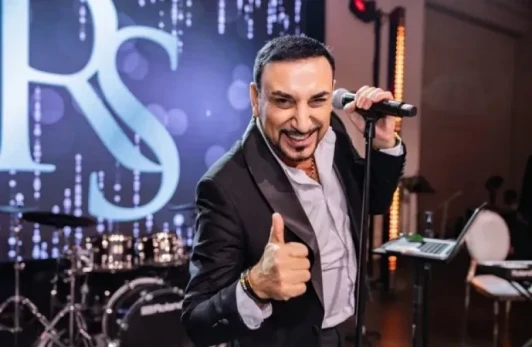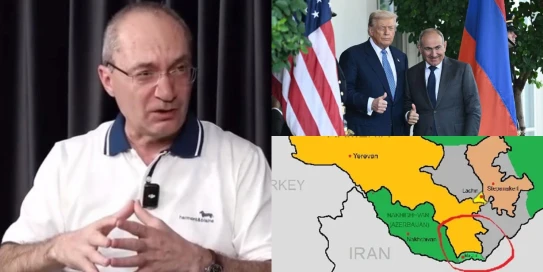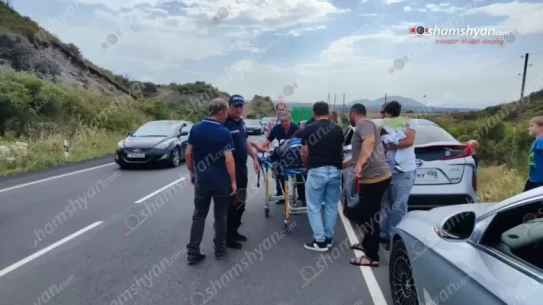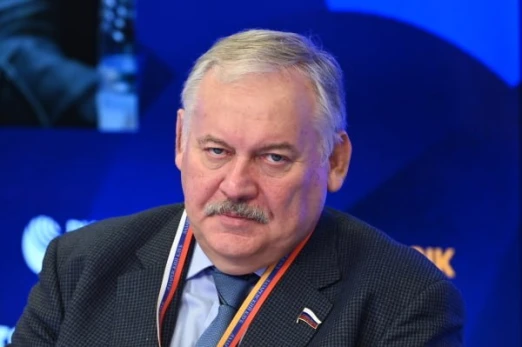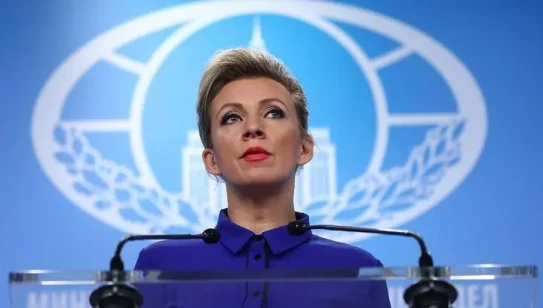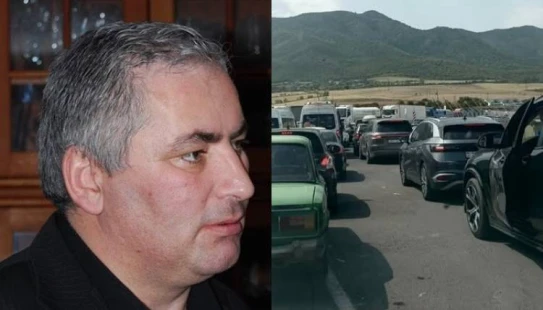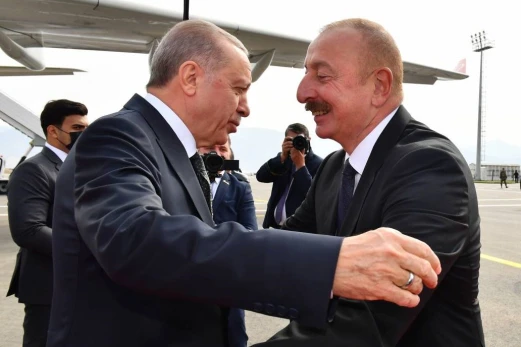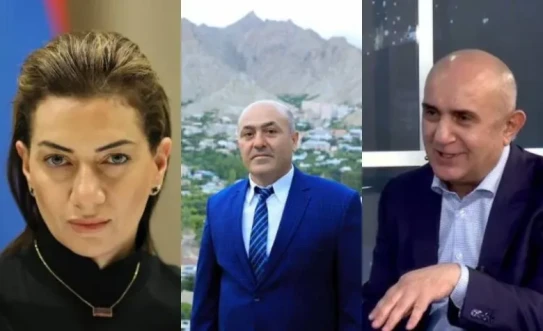"Fact" daily writes:
It was expected that the leadership of Armenia would respond in some way to the aggressive and obviously bellicose statements made by the President of Azerbaijan, Ilham Aliyev, in an interview with the Russian state TV station.
In that matter, by the way, the enemy stepped forward, creating a situation in which Pashinyan, who is considered the leadership of Armenia, could not pretend that nothing had happened, and calmly ride a bicycle or, let's say, "reel" pictures. In short, he had to react.
Yesterday he gave an interview to the "Armenpress" agency. But since he did not keep quiet, let's see what he said.
If very briefly, Pashinyan made it more than clear that he is ready to accept Aliyev's next conditions. Similar to his earlier statement, Pashinyan continued to position himself as a servant of the interests of the "Azerbaijani people".
See: to a very simple question, what is Armenia's position regarding the idea of dissolving the OSCE Minsk Group, Pashinyan answered. "Constructive. We understand the position that if there is no conflict, what is the point of having a conflict resolution format?
But we also want to make sure that Azerbaijan approaches the issue with this same logic, and its motivation is not, for example, to implement an aggressive policy towards the territory of the Republic of Armenia by developing the so-called "Western Azerbaijan" discourse is a dangerous statement.
Pashinyan's wording is both manipulative and cynical in its content, and much more than dangerous, in addition, such an approach is also a minefield for another government guided by national and state interests. Let's try to understand what is the word in general, currently justifying the mentioned definitions.
The OSCE Minsk Group was formed in March 1992 for the peaceful settlement of the Artsakh conflict. The OSCE document states that the group's goal is to find (propose) political solutions to the Nagorno Karabakh conflict between Armenia and Azerbaijan.
Despite such wording, everyone accepted and accepts that the core of mediation efforts of the Minsk Group, especially the tri-presidency of the IC (Russia, USA, France) is the political (peaceful) settlement of the Artsakh problem.
Mediation efforts and activities of the three-day presidency of the Central Committee have been focused on this for decades.
In the opposite case, during that period, issues directly related to Armenia-Azerbaijan relations would be discussed publicly, as well as issues related to the rights of the Armenians of Artsakh, related to the activities of that group.
But the main thing is that Azerbaijan and Turkey consider that: a) the problem of Artsakh is no longer resolved, b) there is no topic of conflict with Artsakh. The problem of Artsakh is solved, but it is not.
The genocidal crime committed against the Armenians of Artsakh, the depopulation of Artsakh by the criminal approach of ethnic cleansing for thousands of years is not a solution to the conflict, regardless of who says what.
How was it resolved and as a result of what happened? Pashinyan's efforts to bring the negotiation process to a complete deadlock, provocative statements, statements legitimizing the enemy's military ambitions, content distortion of the issue (from the issue of national self-determination to territorial absorption), war, losses, handing over the liberated territories without firing a shot, finally, the denial of Artsakh, the besieged Artsakh to the enemy's threats and in response to an attack, non-intervention, 'war weak position of not getting involved" by the leader of Armenia.
But it is not a solution, let alone a settlement. Moreover, the very object of the existence and "occupation" of the OSCE Minsk Group is the problem of Artsakh.
Artsakh: The main thing. no matter how much it is considered that the OSCE Minsk Group is inactive and the tri-presidency states are in a sharp conflict, the real issue is that the dissolution of the OSCE will become a unique tombstone in international legal and political terms for the pursuit of the rights of the Armenians of Artsakh and the possible realization of the right of our compatriots to return to their homeland and live. for
And who is Nikol Pashinyan to make decisions regarding the fate and fundamental rights of Artsakh and Artsakh Armenians?
Nikol Pashinyan only holds the position of the Prime Minister of Armenia. He was not elected, he was not given such powers by the Armenian people of Artsakh, which, by the way, is not 100 or 120 thousand, as many mention and repeat, but 149 thousand (according to the official data of the last census). ).
In short, Nikol Pashinyan has no political, legal, human and, even more so, moral right to decide anything on such a question directly related to the rights of the Armenians of Artsakh. make such a statement.
The other one. Pashinyan has decided to "make a bargain" with Aliyev at the expense of the Armenians of Artsakh. Well, we will agree to the dissolution of the OSCE Minsk Group, if Aliyev also agrees that he will not call Armenia "Western Azerbaijan". He won't act like that one day, will he?
What kind of condition is that? Well, at least the condition was like something. After that, what Nikol Pashinyan said about the two points of the "peace agreement" is no longer surprising. They don't seem interesting either.
One is about not having representatives of third countries on the Armenian-Azerbaijani border. Pashinyan practically agrees to that and says that there will be no representatives after the complete demarcation.
And if these are the 2 "non-agreed" points out of 17, then it's scary to even imagine what the remaining 15 agreed points, which are kept secret from the people, are about.
It is not difficult to predict that after such a reaction from Pashinyan, Aliyev will further toughen and intensify both the voiced and new demands, for example, to demilitarize and disarm the Armenian army, arrest the leaders of the Artsakh liberation war and hand them over to Azerbaijani executioners, resettle 300 thousand Azerbaijani Turks in Armenia and etc. etc.
The enemy's demands will not end, and as long as Pashinyan is the leader of Armenia, let's not continue, it's clear.



















